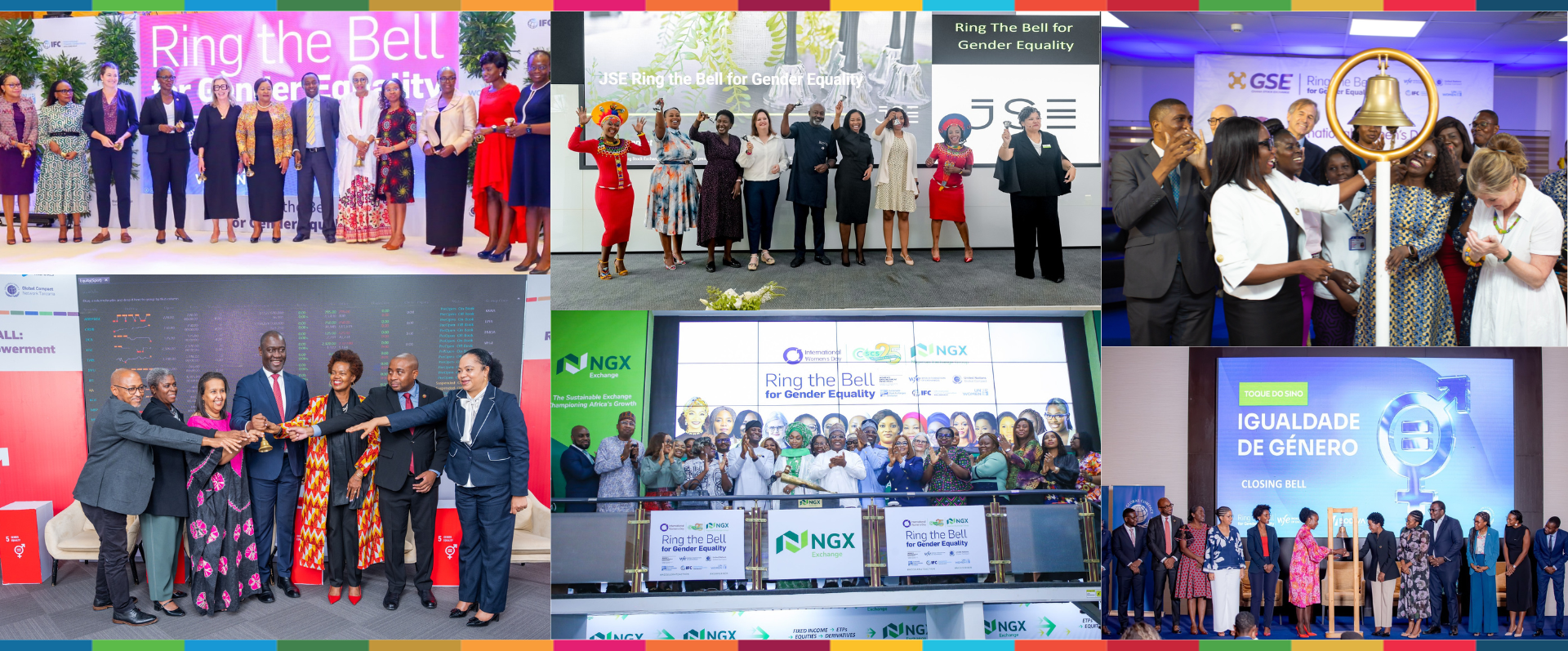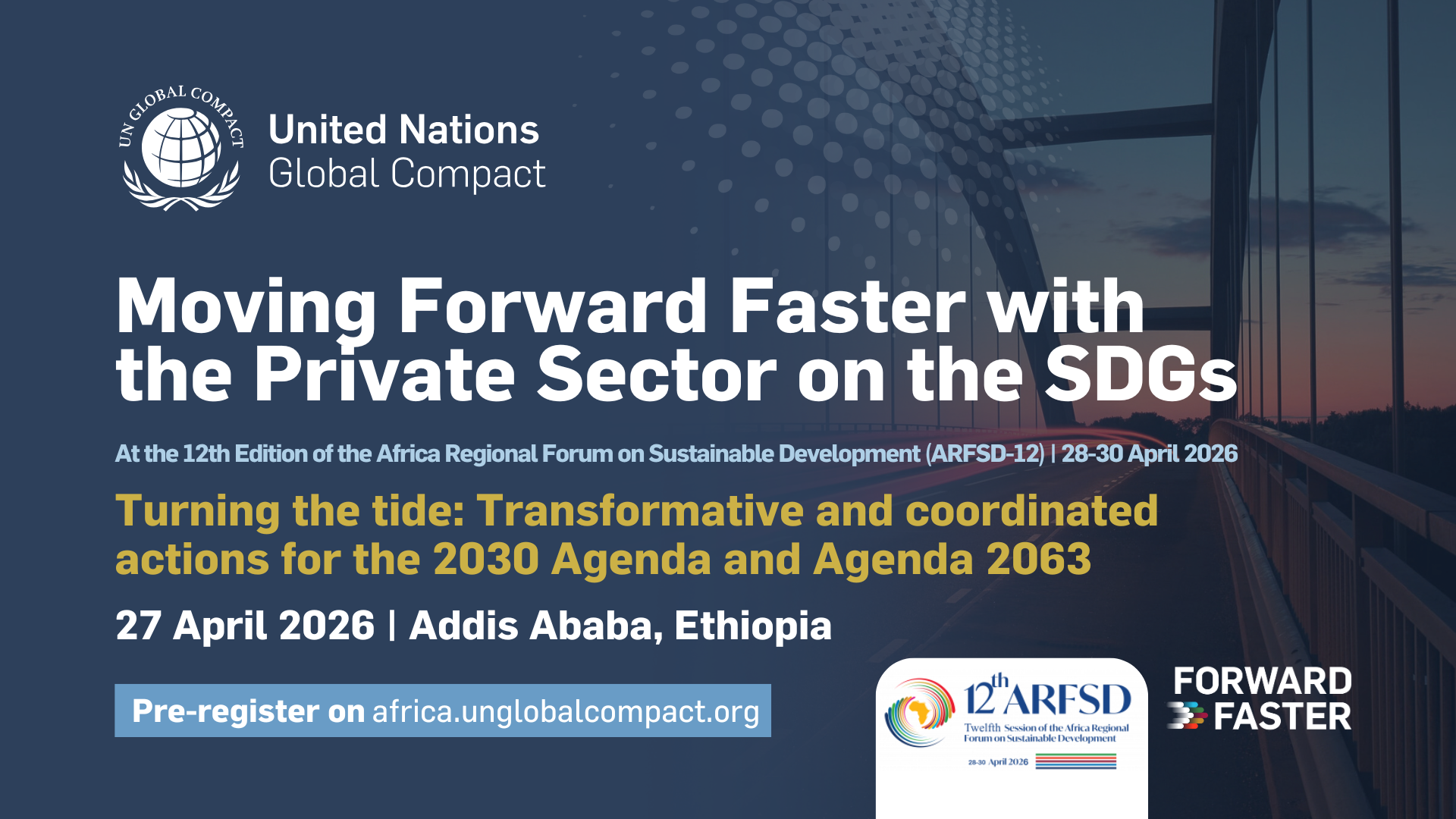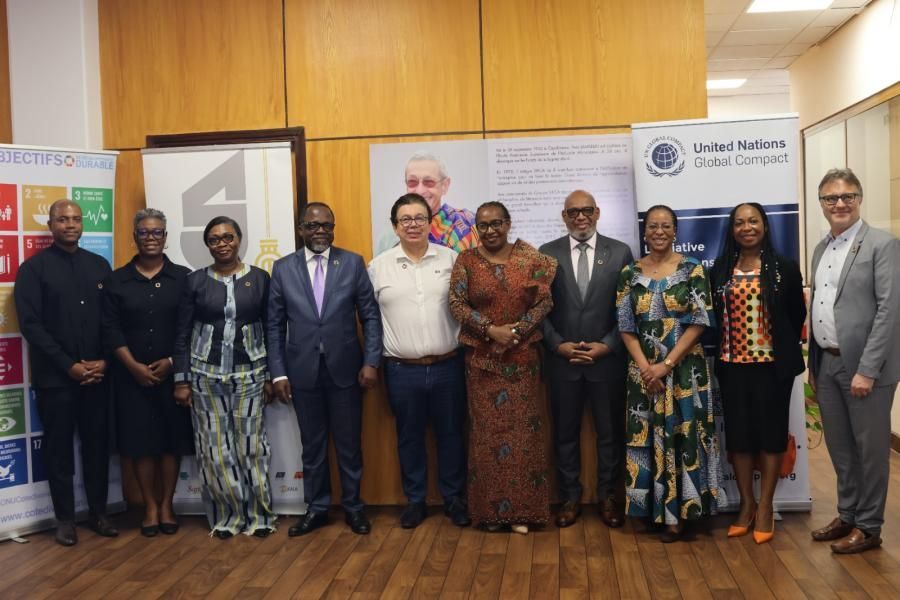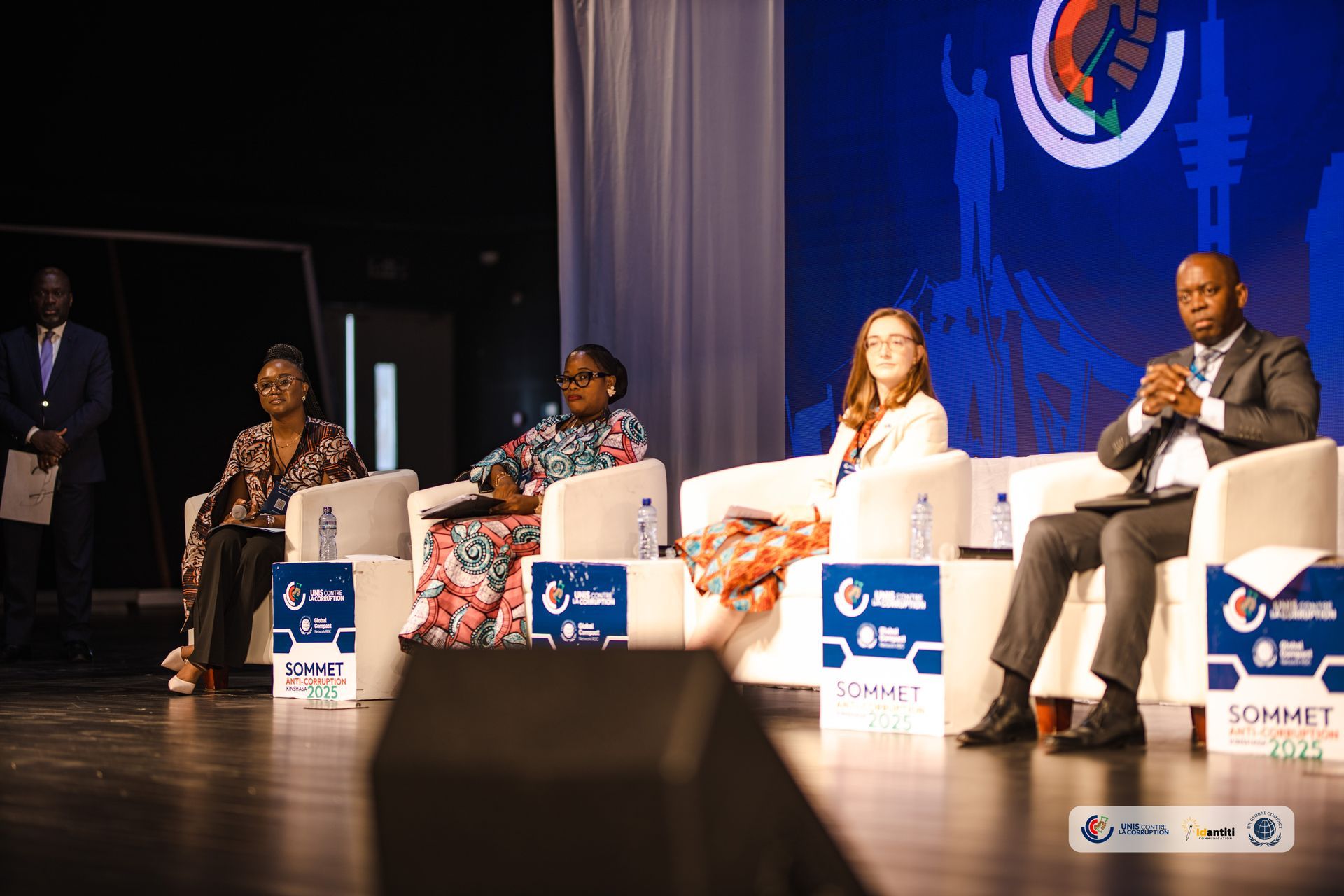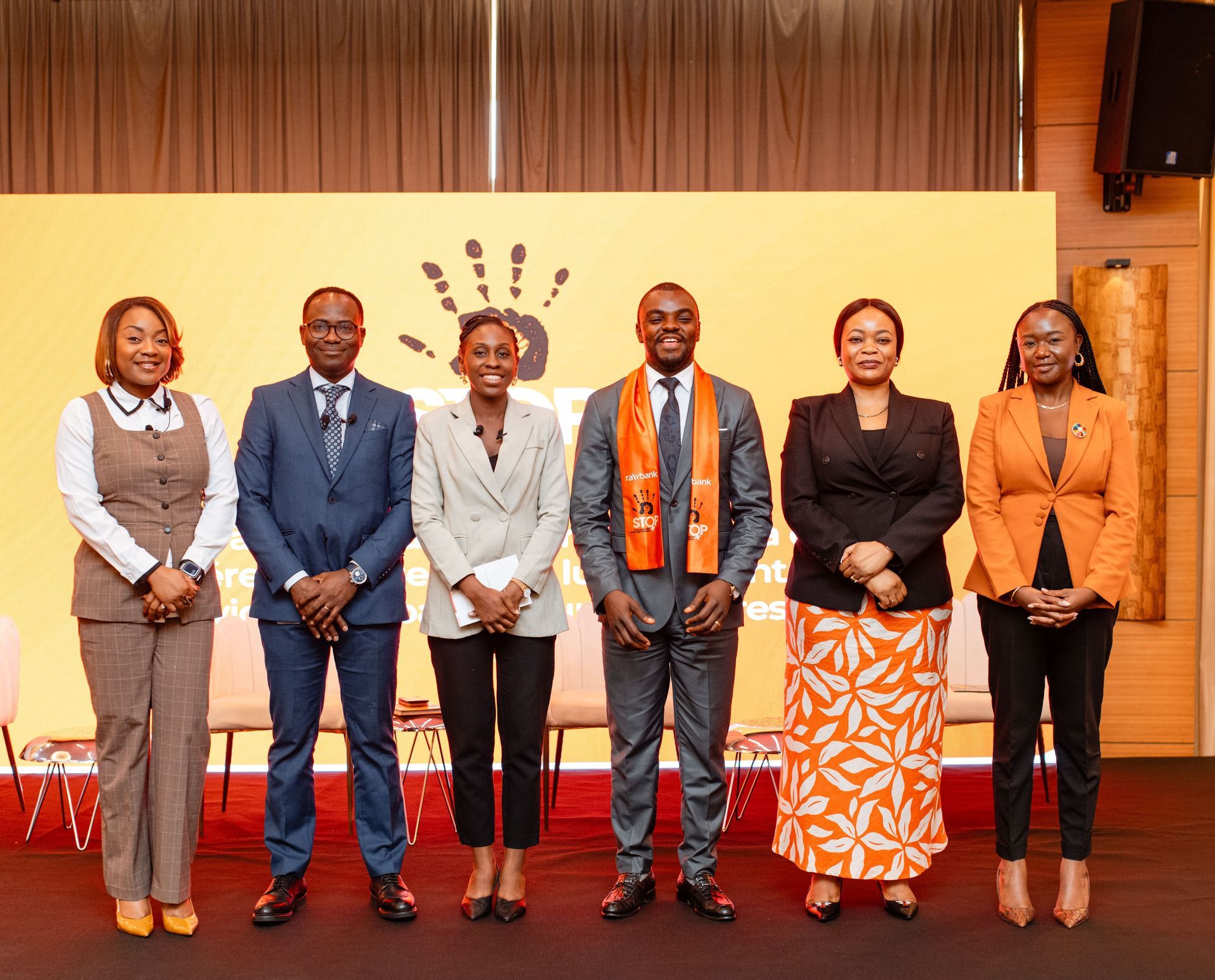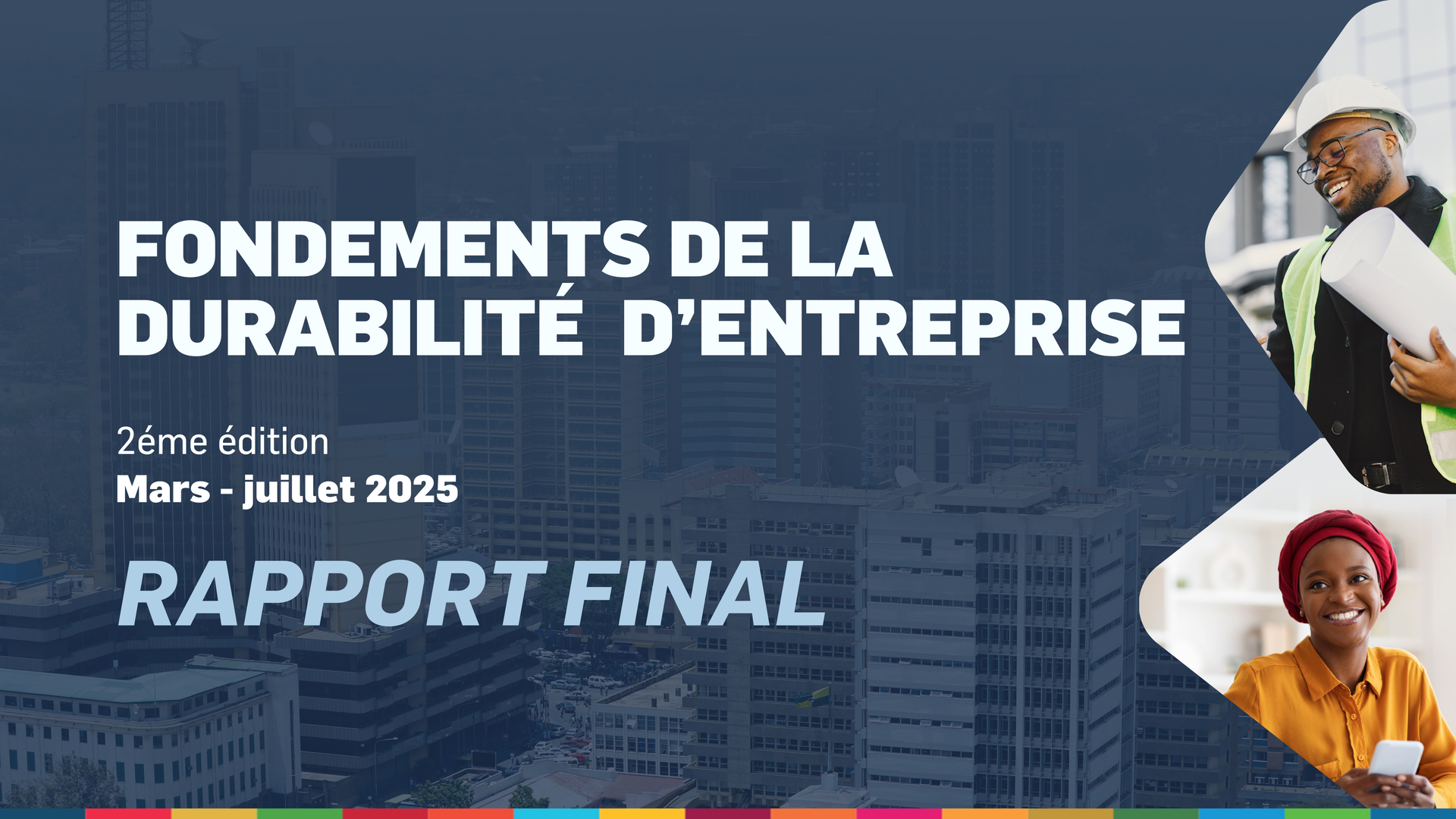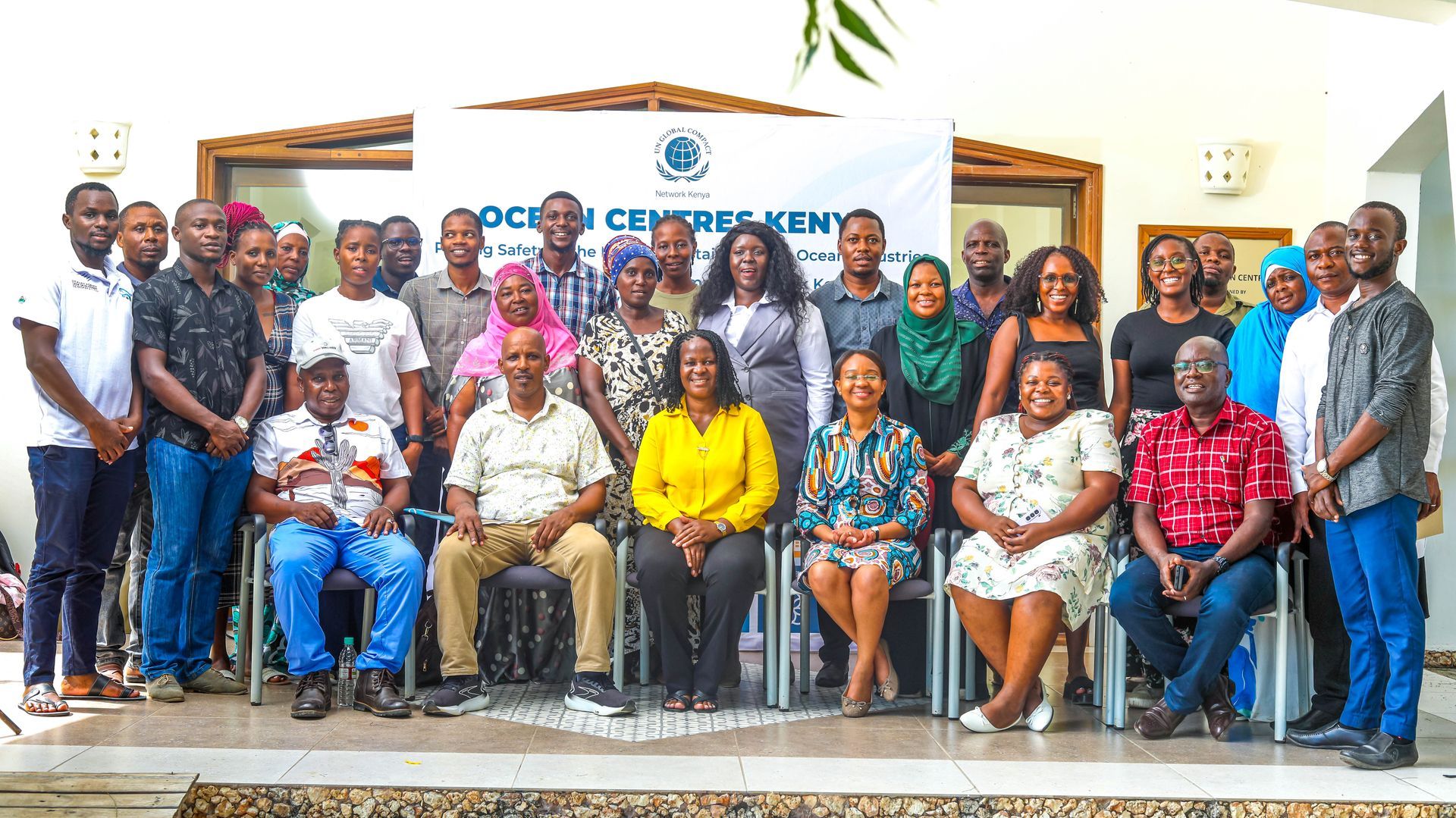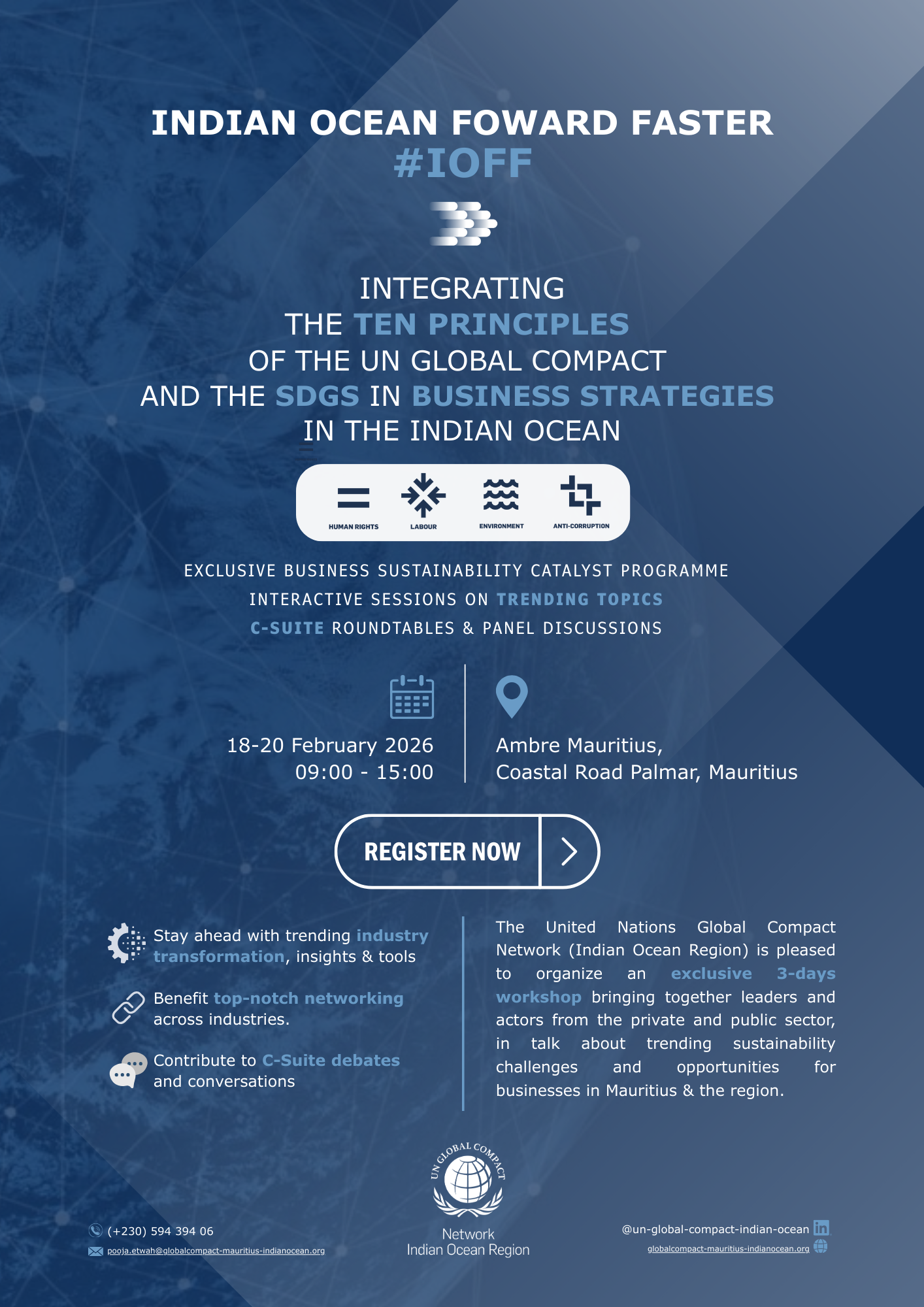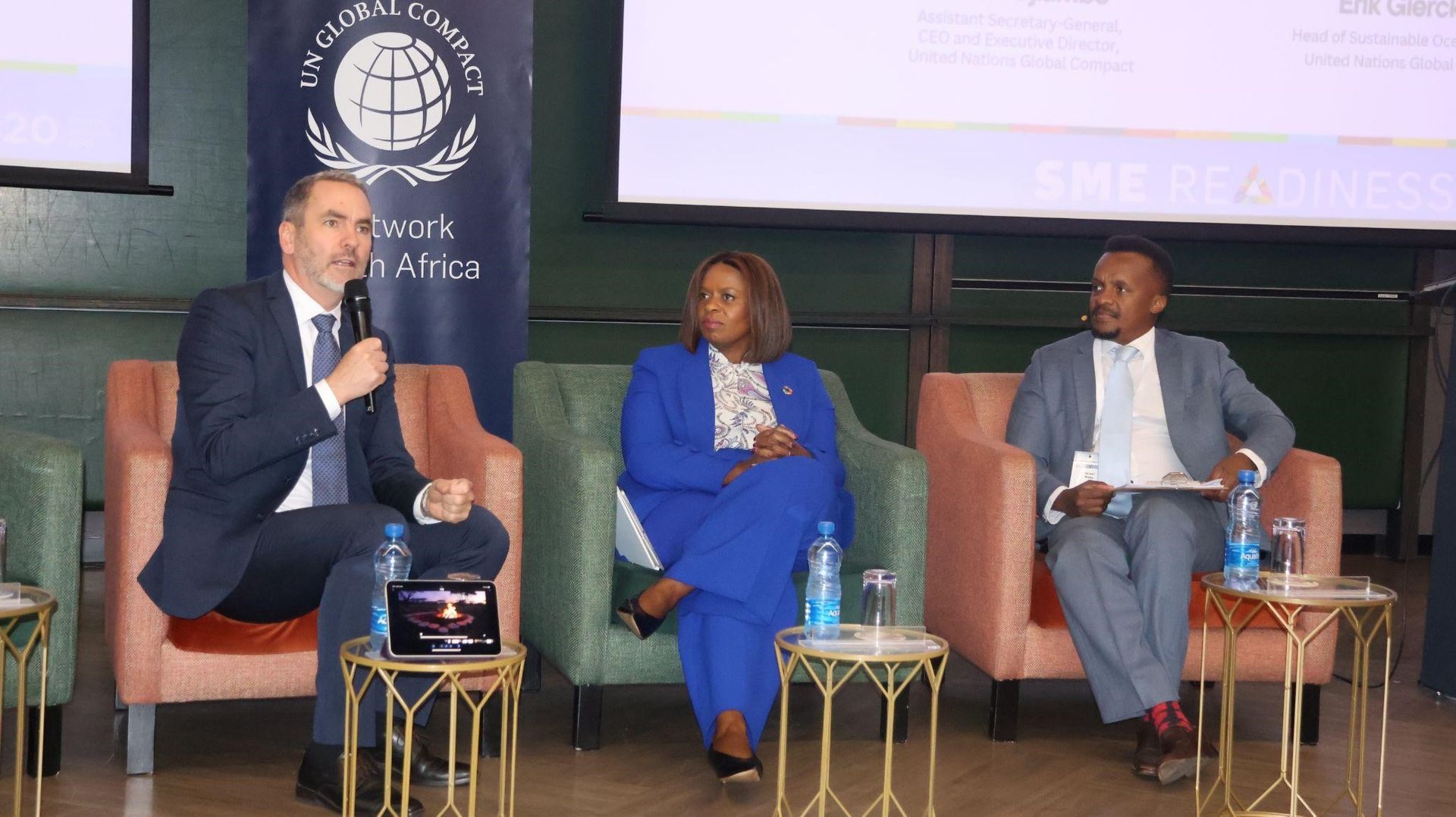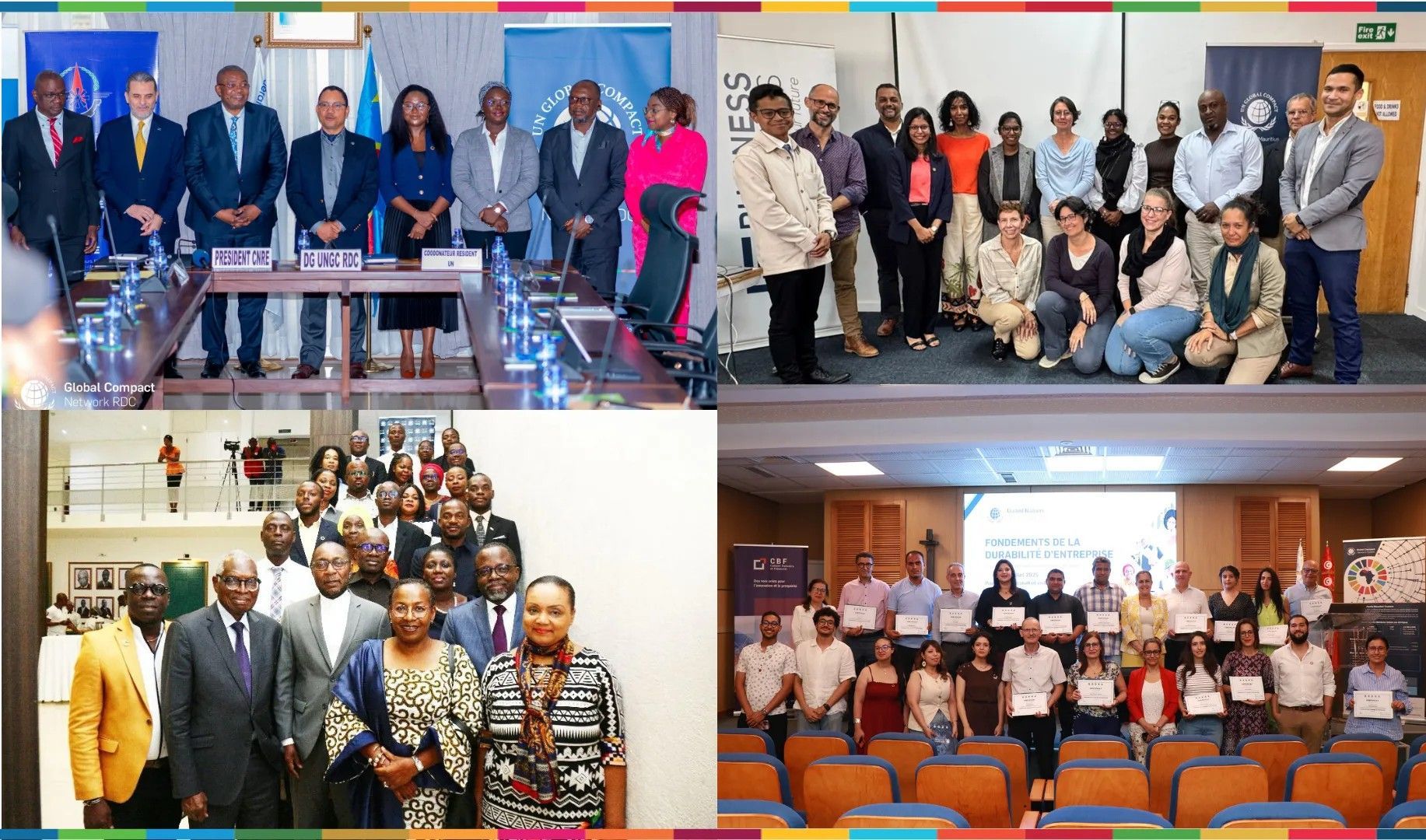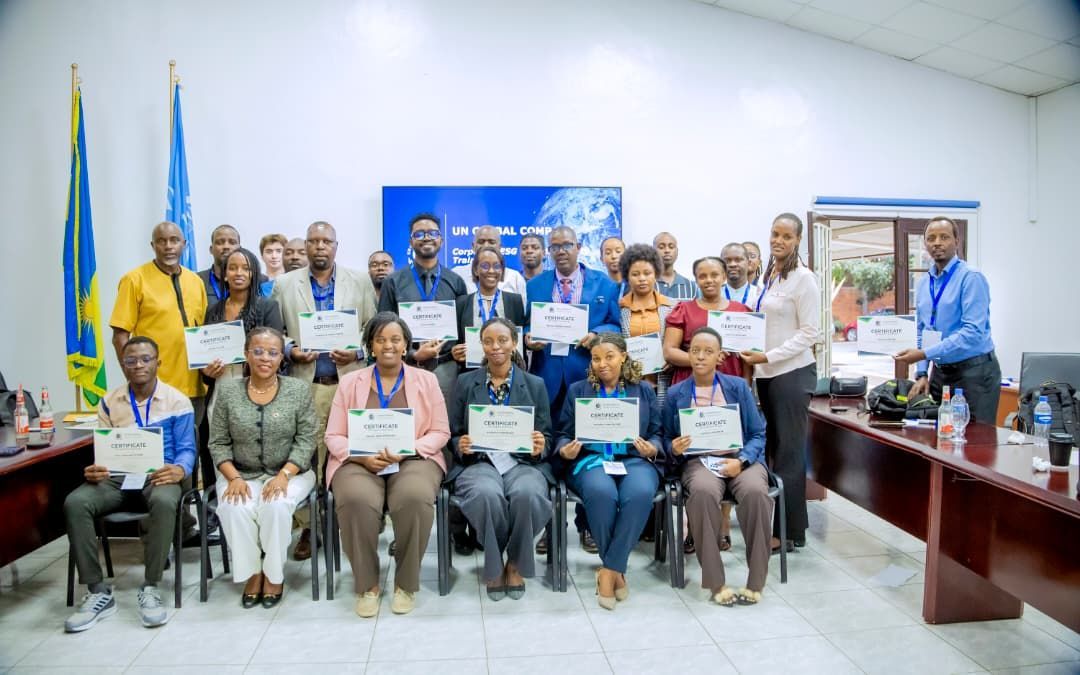Championing Gender Equality Across Africa
Championing Gender Equality Across Africa: UN Global Compact Country Networks Mark International Women’s Day 2025
As the world marked International Women’s Day on March 8, 2025, the UN Global Compact joined the global community in celebrating the 11th annual Ring the Bell for Gender Equality campaign. This year’s theme, “Ring the Bell for ALL Women and Girls: Rights. Equality. Empowerment,” resonated deeply across Africa, where Country Networks partnered with stock exchanges, governments, and private sector leaders to amplify the call for gender equality and empowerment.
Since its inception in 2015, the Ring the Bell for Gender Equality initiative has grown exponentially across the globe, from just seven participating stock exchanges to over 115 in 2025. Organized in collaboration with the Sustainable Stock Exchanges (SSE) Initiative, UN Women, the International Finance Corporation (IFC), and the World Federation of Exchanges, this global campaign highlights the critical role of the private sector in advancing gender equality and achieving the Sustainable Development Goals (SDGs), particularly SDG 5: Gender Equality.
Across Africa, UN Global Compact country networks in Nigeria, Kenya, South Africa, Tanzania, and Rwanda collaborated on impactful events, uniting business leaders, policymakers, and civil society to assess progress, tackle ongoing challenges, and reaffirm their commitment to advancing gender equality.
Ghana
The Global Compact Network Ghana and the Ghana Stock Exchange joined global exchanges to mark International Women’s Day 2025 with the Ring the Bell for Gender Equality event. The event highlighted the need for inclusivity and gender equality in business. Industry leaders, entrepreneurs, students, and advocates gathered to emphasize women’s critical role in economic development and the importance of equitable opportunities.
Tolu Kweku Lacroix, Executive Director of the UN Global Compact Network Ghana, stated, “The Forward Faster campaign calls for urgent action to achieve equal representation of women in leadership roles.” A high-level panel featuring speakers from finance, corporate Ghana, and education shared insights on advancing women’s rights and empowerment.
Nigeria
On March 7, 2025, the UN Global Compact Network Nigeria, in partnership with the Nigerian Exchange Group (NGX Group) and the Central Securities Clearing System (CSCS), hosted a ring the bell ceremony at the NGX Group House in Lagos. The event featured a high-level panel discussion with notable leaders such as Adesuwa Okunbo-Rhodes, Founder and CEO of Aruwa Capital Management, and Chalya Shagaya, Senior Special Assistant on Entrepreneurship Development to the President of Nigeria.
Panelists stressed the need to invest in women-led businesses and initiatives that foster financial independence. The ceremony concluded with a closing gong sounded by Hannatu Musa Musawa, Nigeria’s Minister of Arts, Culture, Tourism, and Creative Economy, alongside Temi Popoola, Group Managing Director and CEO of NGX Group and Chairman of CSCS, symbolizing a unified commitment to advancing gender equality in Nigeria’s business landscape.
Kenya
In Kenya, the Global Compact Network Kenya collaborated with the Nairobi Securities Exchange (NSE), IFC, and UN Women to host the annual ring the bell ceremony. The event highlighted the private sector’s role in promoting gender equality and urged companies to adopt the Women’s Empowerment Principles (WEPs).
Cabinet Secretary for Wildlife and Tourism Rebecca Miano, the Chief Guest, emphasized the economic advantages of gender inclusion, noting its potential to boost corporate performance and profitability. Judy Njino, Executive Director of Global Compact Network Kenya, urged the private sector to engage in initiatives like the Target Gender Equality (TGE) Accelerator and the Forward Faster Initiative to drive impactful progress.
Learn more
South Africa
Board Member of the UN Global Compact and CEO of Naspers South Africa, Phuthi Mahanyele-Dabengwa, joined the Country Network to ring the bell in collaboration with the Johannesburg Stock Exchange (JSE). She emphasized that closing the gender gap could boost the global economy by $7 trillion, underscoring the importance of empowering women and girls with equal opportunities.
Dr. Achieng Ojwang, Executive Director of the UN Global Compact Network South Africa, and Nelson Muffuh, UN Resident Coordinator in South Africa, echoed these sentiments, calling for gender equality to be embedded in corporate policies, leadership, and decision-making.
Tanzania
In Tanzania, the UN Global Compact Network Tanzania joined forces with IFC, the Dar es Salaam Stock Exchange (DSE), and UN Women to host the ceremony. The event centered on addressing barriers and identifying actionable solutions to unlock the full potential of women in the workforce. Executive Director of the Global Compact Network Tanzania, Marsha Macatta-Yambi, emphasized the power of collaboration, stating, “Partnership enables stakeholders to leverage their skills, resources, and influence to effect systemic change. Such partnerships in the name of collaboration make gender equality efforts more effective and durable.”
The ceremony featured a distinguished panel including Martine Valcini, IFC Country Manager for Tanzania and Rwanda; Peter Nalitolela, CEO of the Dar es Salaam Stock Exchange; and Lucy Charles-Shaidi, Manager at the Bank of Tanzania. Panelists also included Adam Mbyallu, Co-founder and Chief Strategic Officer of Sahara Ventures; Christina Korosso, PR and Communication Manager at Azam Media Limited; and Juliana Muwanga, Head of HR Projects and Change Management at NMB Bank Plc.
Rwanda
The Rwanda Stock Exchange (RSE) hosted its 9th annual bell-ringing ceremony in partnership with IFC Rwanda, UN Women, and the UN Global Compact Network in Rwanda. The event brought together key stakeholders, including Pierre Celestin Rwabukumba, CEO of RSE; Janice Ryu, IFC Resident Representative for Rwanda and Uganda; and Mireille Batamuliza, Permanent Secretary of the Ministry of Gender and Family Promotion. Participants celebrated Rwanda’s progress in gender equality while reaffirming their commitment to advancing women’s empowerment.
Angola
On March 20, 2025, the Angola Stock Exchange (BODIVA) and the UN Global Compact in Angola hosted the Ring the Bell for Gender Equality event as part of the global campaign by the World Federation of Exchanges. The event focused on advancing gender equality in the corporate sector, reflecting BODIVA’s commitment since joining the UN Global Compact in 2020.
Around 100 participants, including the UN Resident Coordinator in Angola and sector representatives, attended. BFA and UNITEL shared strategies for promoting gender equality, while a panel discussion explored the business sector’s role in achieving Sustainable Development Goal 5.
Explanation of changes:
Across the countries in the African region, businesses, governments, and civil society came together to highlight the importance of inclusive actions that promote the rights and empowerment of all women and girls. The UN Global Compact remains steadfast in its goal to accelerate private sector action on gender equality. Through initiatives like the Women’s Empowerment Principles (WEPs), the Target Gender Equality Accelerator, and the Forward Faster Initiative, we are working to ensure that women and girls across Africa have equal opportunities to thrive. The 11th annual Ring The Bell For Gender Equality events demonstrates the African private sector’s growing commitment to gender equality.
As we reflect on the progress made and the challenges ahead, it is important to emphasize that gender equality is not only a moral obligation but also an economic necessity. Africa must take the lead in building a more inclusive and equitable future, striving relentlessly to achieve gender equality by 2030.
